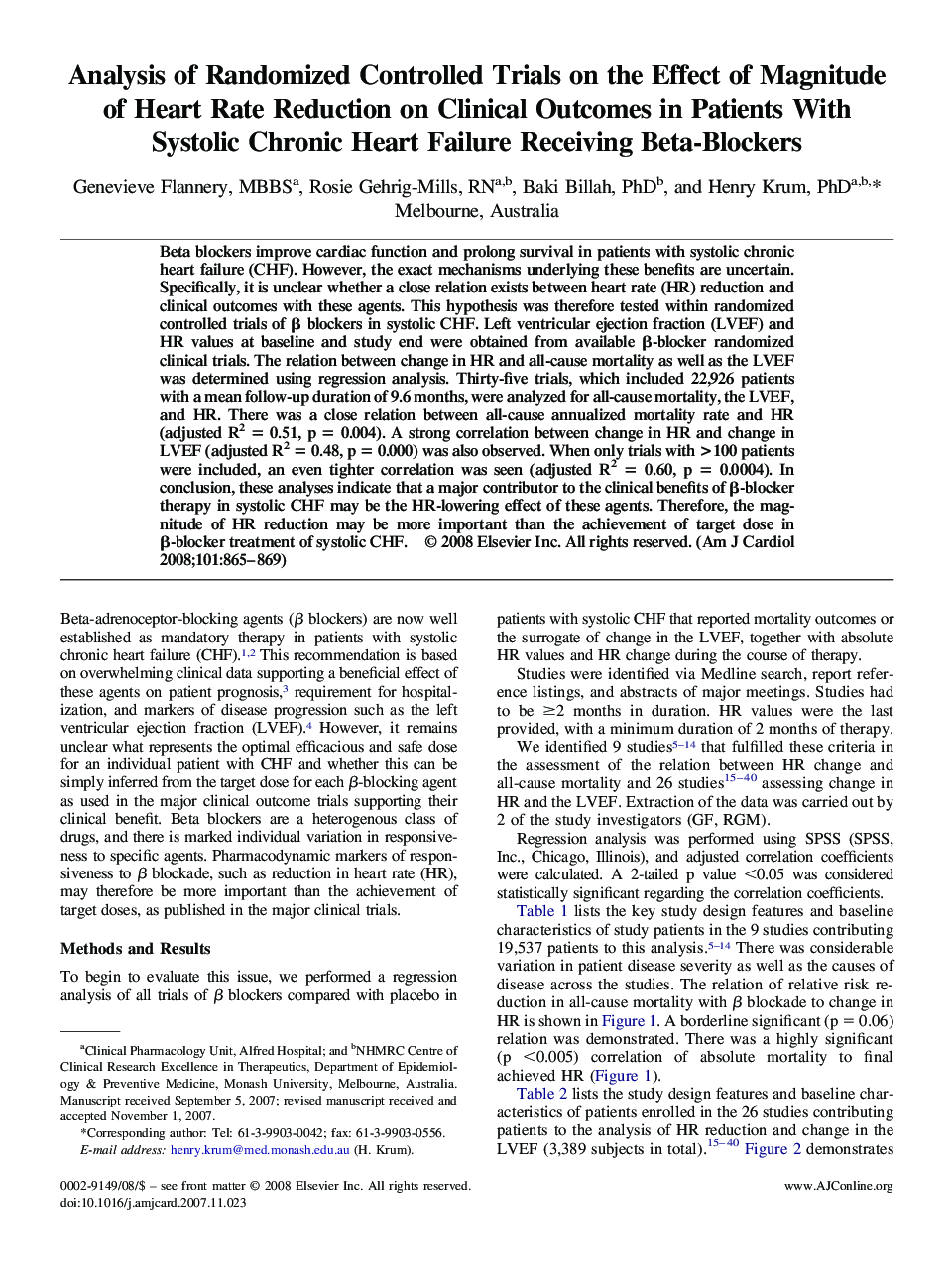| Article ID | Journal | Published Year | Pages | File Type |
|---|---|---|---|---|
| 2859856 | The American Journal of Cardiology | 2008 | 5 Pages |
Beta blockers improve cardiac function and prolong survival in patients with systolic chronic heart failure (CHF). However, the exact mechanisms underlying these benefits are uncertain. Specifically, it is unclear whether a close relation exists between heart rate (HR) reduction and clinical outcomes with these agents. This hypothesis was therefore tested within randomized controlled trials of β blockers in systolic CHF. Left ventricular ejection fraction (LVEF) and HR values at baseline and study end were obtained from available β-blocker randomized clinical trials. The relation between change in HR and all-cause mortality as well as the LVEF was determined using regression analysis. Thirty-five trials, which included 22,926 patients with a mean follow-up duration of 9.6 months, were analyzed for all-cause mortality, the LVEF, and HR. There was a close relation between all-cause annualized mortality rate and HR (adjusted R2 = 0.51, p = 0.004). A strong correlation between change in HR and change in LVEF (adjusted R2 = 0.48, p = 0.000) was also observed. When only trials with >100 patients were included, an even tighter correlation was seen (adjusted R2 = 0.60, p = 0.0004). In conclusion, these analyses indicate that a major contributor to the clinical benefits of β-blocker therapy in systolic CHF may be the HR-lowering effect of these agents. Therefore, the magnitude of HR reduction may be more important than the achievement of target dose in β-blocker treatment of systolic CHF.
